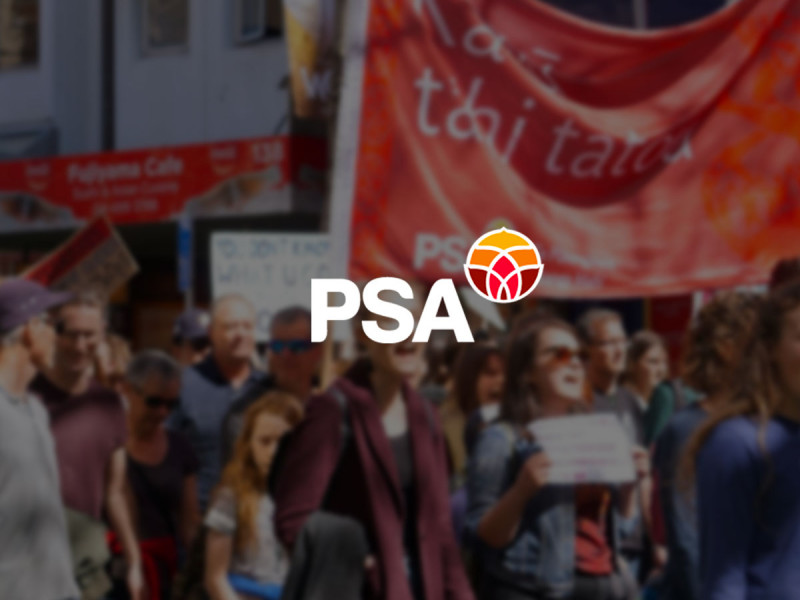Thousands of PSA members work in a range of occupations delivering mental health and addiction services, and they consistently report the system is in crisis and they lack resources to meet community need.
The union is pleased that funding boosts for General Practitioners and kaupapa Māori services will increase access and help decrease stigma.
A long-term plan is needed to shift service provision away from an inefficient competitive model toward a more collective and cooperative alternative.
"Funding constraints have for too long limited mental health services to being the ambulance at the bottom of the cliff, often accessible only after someone has already reached crisis point and sometimes difficult to access even then," says PSA National Secretary Kerry Davies.
"This funding increase highlights the need for both early intervention and crisis support services for us to have a fully functioning mental health and addiction system. It’s a positive step towards expanding access to mental health support for those with mild to moderate needs."
Disparities in pay, conditions and training currently exist between workers in different parts of the sector, undermining the ability of some providers to retain employees in high-need areas and causing disconnection between staff and their peers.
"It’s not unusual for a mental health patient to receive support from multiple specialists in different areas, and we want the different sections of the mental health system to communicate and cooperate with each other effectively," says Ms Davies.
A report from the Mental Health & Addiction Inquiry has been accepted by the government, which recommends those who receive and deliver mental health and addiction services help design the systems they are a part of.
A well-resourced system of both early intervention and crisis support must be complemented by fundamental economic and social change, in order to tackle the inequality and poverty exacerbating New Zealand’s mental health and addiction problems.
"Mental illness is often made worse by long shifts at stressful jobs that don’t pay enough. It’s made worse by cold damp houses that make us sick, and by a culture that atomises people and divides us from one another instead of nurturing collective institutions and values," says Ms Davies.
"Additional government funding will save lives and we are happy to see it, but much greater change is needed before we live in a safe and supportive society."
See also: Workforce needs highlighted by PSA Mental Health & Addiction Committee
2019-02-22
Members of the PSA Mental Health & Addiction Committee from around New Zealand have been meeting in Wellington today to review PSA members’ feedback about recommendations for change in the Mental Health and Addiction Inquiry report delivered to Government in November.
“After holding a round of regional forums around the country we have strong feedback from PSA members that the report was too light on the fundamental need to support a robust mental health and addiction workforce given we are experiencing a significant workforce crisis,” says PSA Mental Health Committee convenor Andy Colwell.
Robyn Shearer, Deputy Director-General Mental Health and Addiction at the Ministry of Health, talks with the PSA Mental Health Committee in Wellington today.
“While our regional forums in Auckland, Hamilton, Wellington, Nelson and Christchurch, as well as an online survey, were generally positive that the areas identified for change cover the right bases, our members also warned that the government’s response to the Inquiry report will fall short of the mark if it doesn’t address workforce issues and needs.
“In particular chronic workforce shortages will only get worse without more resourcing and a substantial, urgent investment in people and improved facilities.
“Of equal concern is the dangerous levels of risk that mental health and addiction workers are continuing to be exposed to every day.
“Since the Inquiry report was received by Health Minister David Clark the incidence of serious health and safety incidents impacting on the mental health workforce has been making headlines on an almost weekly basis and can’t be allowed to continue.
“We want to see specific attention to address those risks, along with improved training and specialisation.
“Now is the time for the Government to be bold in delivering long-overdue changes to truly transform the mental health system. It has been left to languish, to the detriment of the wellbeing of all New Zealanders, for far too long”.
The PSA Mental Health Committee members and PSA staff: Fiona Ormsby (PSA organiser), Amanda Martin, Kevin McGorry (PSA organiser), Billy West, Tarn Evans, Andy Colwell, Joseph Waru, Vicki Lewis, Nancy Dally, Allan Franks, Megan Barry, and Bronte Ammundsen (PSA project advisor)









